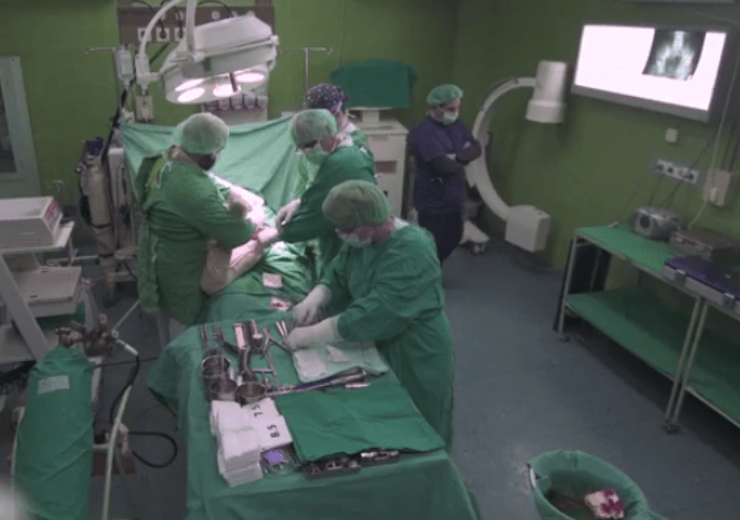The new module will facilitate automated intra-operative assessments in real-time of the true location and positioning of the implants and bones

The new module is part of the company’s suite of orthopaedic image analysis tools. (Credit: RSIP Vision)
RSIP Vision, a provider of AI solutions for medical image analysis, has introduced a new 2D to 3D registration module to optimise the execution of orthopaedic surgeries such as total hip arthroplasty.
With the support of a neural network and trained on patient-specific imaging, the new module will facilitate automated intra-operative assessments in real-time of the true location and positioning of the implants and bones.
The company has designed the new solution to enhance the efficacy of both the planning and execution phases of hip replacement surgery via automated landmark detection and measurement of anatomical relationships.
The new module is part of the company’s suite of orthopaedic image analysis tools for pre-operative planning and intra-operative navigation.
By leveraging an AI-based patient-specific image registration algorithm, the new module helps implant and medical imaging companies to support specific and intraoperative procedures such as hip replacement surgical solutions.
RSIP Vision is also involved in the development of additional modules for implant hardware registration and 3d anatomical measurements suite, alongside the initial capability of the 2d-to-3d femur and pelvis registration.
The new module helps to identify and update changes from the pre-operative condition to confirm that the components are in their desired positions when the surgeon moves across the various stages of the procedure.
In a statement, Israel’s Tel Aviv Sourasky Medical Centre orthopaedic surgeon Dr Shai Factor said: “Getting to such accuracy is not easy to achieve, but it is vital, so today we rely on our personal experience and eyeballing to get that done.
“This technology will assist and guide us, the surgeons, throughout the procedure, providing the essential feedback regarding anatomical measurements and implant positioning. I believe it will improve our surgeries’ accuracy and may lead to better clinical outcome.”
In June this year, RSIP Vision unveiled a new surgical workflow analysis technology that identifies individual stages of a surgical procedure and labels them in real-time.
